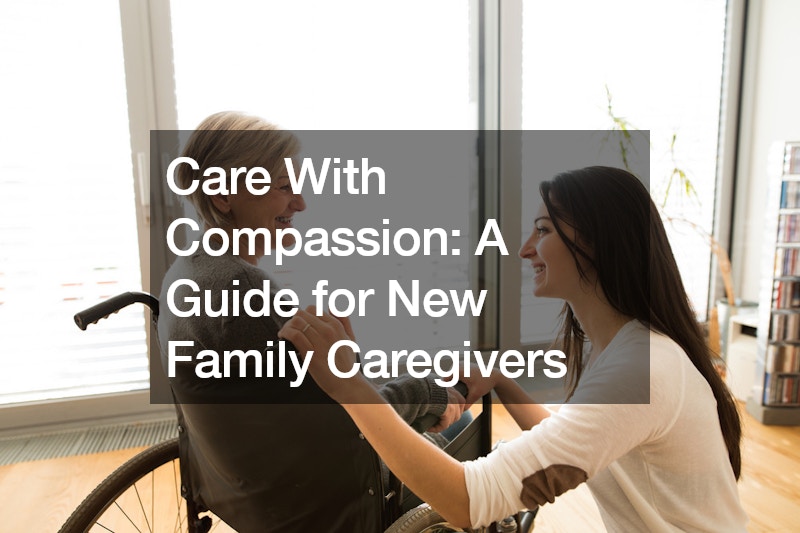Caring for a loved one can be a deeply rewarding experience, but it also comes with its challenges. As a new family caregiver, it’s essential to equip yourself with knowledge, resources, and support to navigate this journey effectively. Here are some indispensable tips to help you along the way:
Set Clear Boundaries
Establishing boundaries from the outset is crucial for maintaining your well-being as a caregiver. Clearly communicate the number of hours you can dedicate to caregiving and the days you’re available to assist. By setting these boundaries, you not only protect your own physical and emotional health but also ensure that you can provide consistent and sustainable care for your loved one.
Moreover, establishing boundaries can help manage expectations and prevent misunderstandings with your loved one. It’s essential to have open and honest conversations about what you can and cannot do as a caregiver, setting realistic limits while still providing the support your loved one needs. Remember that prioritizing your own well-being is not selfish but necessary for effective caregiving.
Learn About Conditions
If your loved one suffers from conditions like dementia or Alzheimer’s, educating yourself about these conditions early on is crucial. Understanding the progression of these conditions and their symptoms can help you provide better care and support for your loved one. Take the time to learn about the various stages of dementia and Alzheimer’s disease, as well as the specific challenges and behaviors associated with each stage.
Furthermore, learning about these conditions can help you anticipate and prepare for future caregiving needs. It’s essential to familiarize yourself with effective strategies for communicating with and caring for someone with dementia or Alzheimer’s. By educating yourself about these conditions, you can empower yourself to be a more informed and compassionate caregiver for your loved one.
Discuss Life Wishes
Having open conversations about your loved one’s life wishes is not only important but also deeply meaningful. By discussing preferences for future care arrangements early on, you can ensure that their wishes are respected and followed through. These discussions can cover a variety of topics, including end-of-life care, funeral arrangements, and even legacy planning. By understanding your loved one’s desires and values, you can provide care that aligns with their wishes, giving them peace of mind and dignity.
Moreover, documenting your loved one’s wishes in advance directives or legal documents can provide clarity and guidance for future decisions. By having these conversations and making necessary arrangements, you can ensure that your loved one’s wishes are honored and that you can advocate for them effectively in any situation.
Seek Support
Caregiving can be emotionally and physically demanding, but you don’t have to navigate this journey alone. Connecting with caregiver support groups, both online and in-person, can provide invaluable emotional support, practical advice, and a sense of community.
Additionally, exploring volunteer programs, community resources, and home health services can lighten your load by providing assistance with caregiving tasks or respite care. A home service offers professional support and relief for caregivers, allowing you to take breaks and attend to your own needs while ensuring your loved one receives quality care. Remember, asking for help is not a sign of weakness but a sign of strength and self-awareness.
Prioritize Safety
Ensuring the safety of your loved one is paramount. Take proactive measures to prevent accidents and injuries by assessing the home environment for potential hazards. Install handrails, ramps, and proper lighting to improve accessibility, and remove trip hazards like throw rugs. Investing in safety aids for the bathroom, such as shower benches and raised toilet seats, can further enhance safety and independence.
Practice Self-Care
Taking care of yourself is essential for sustaining your caregiving role in the long run. Make self-care a priority by setting aside time for activities that recharge you, whether it’s practicing mindfulness, engaging in hobbies, or simply taking breaks to rest and rejuvenate. Remember, self-care is not selfish but necessary for maintaining your physical, emotional, and mental well-being.
Plan for the Future
Anticipating your loved one’s increasing needs and planning accordingly is key to providing effective care. Have honest conversations about your caregiving capabilities and establish a backup plan for emergencies or situations where you may be unable to provide care. This could involve exploring alternative care options, such as assisted living facilities or in-home caregivers, and ensuring that important documents and information are organized and easily accessible.
As a new family caregiver, remember that you’re not alone. By implementing these essential tips and seeking support when needed, you can navigate the caregiving journey with confidence and compassion.
.


